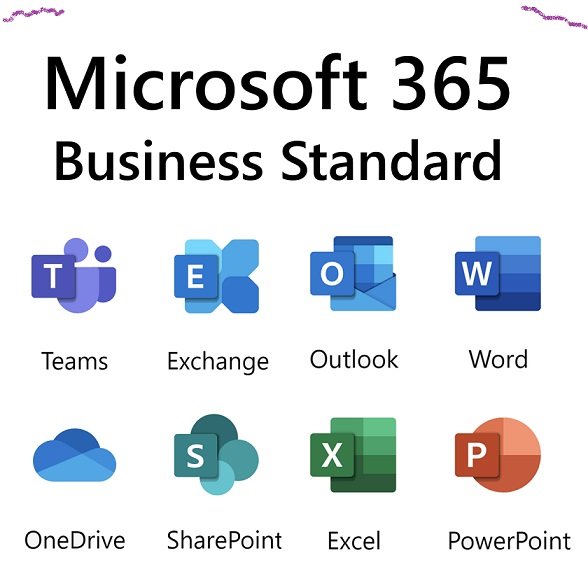Business Studies Class 12 Notes: The Ultimate Guide to Ace Your Exams
Business Studies is a crucial subject for Class 12 students in the commerce stream. It focuses on understanding the principles of management, business environment, and organizational functions. To help students prepare effectively, this blog provides detailed Class 12 Business Studies notes. These notes simplify complex topics, include tables for easy understanding, and ensure you’re fully equipped for your exams.
Why Business Studies is Important for Class 12 Students
Business Studies provides foundational knowledge for commerce and management fields. It enhances critical thinking and helps students:
- Understand real-world business scenarios.
- Prepare for competitive exams like CA, CS, and MBA entrances.
- Develop managerial and entrepreneurial skills.
Chapter-Wise Notes for Business Studies Class 12
Chapter 1: Nature and Significance of Management
Key Concepts:
- Definition of Management:
Management is the process of planning, organizing, staffing, directing, and controlling resources to achieve organizational goals efficiently and effectively. - Characteristics of Management:
- Goal-oriented
- Continuous process
- Multidimensional
- Group activity
- Dynamic function
- Functions of Management:
- Planning: Deciding future actions.
- Organizing: Structuring resources and activities.
- Staffing: Recruiting and managing personnel.
- Directing: Leading and motivating employees.
- Controlling: Monitoring and evaluating performance.
Important Table:
| Function | Description | Example |
|---|---|---|
| Planning | Setting objectives and determining strategies | Launching a new product line |
| Organizing | Allocating resources and defining roles | Creating a departmental chart |
| Staffing | Hiring and training employees | Recruiting a sales team |
| Directing | Providing guidance and leadership | Motivating the workforce |
| Controlling | Measuring performance and taking corrective actions | Reviewing quarterly sales |
Chapter 2: Principles of Management
Key Concepts:
- Fayol’s Principles of Management:
- Division of Work
- Authority and Responsibility
- Discipline
- Unity of Command
- Unity of Direction
- Subordination of Individual Interest
- Remuneration
- Centralization
- Scalar Chain
- Order
- Equity
- Stability of Tenure
- Initiative
- Esprit de Corps
- Taylor’s Scientific Management:
- Focus on efficiency and productivity.
- Key principles: Science, Harmony, Cooperation, and Development.
Practical Application Example:
| Principle of Management | Real-World Application |
|---|---|
| Division of Work | Specialization in tasks improves efficiency. |
| Unity of Direction | All departments should work toward a common goal. |
| Remuneration | Fair wages boost employee motivation and loyalty. |
Chapter 3: Business Environment
Key Concepts:
- Definition: The business environment refers to external forces, factors, and institutions that impact a business’s functioning.
- Components of the Business Environment:
- Economic Environment
- Social Environment
- Technological Environment
- Political Environment
- Legal Environment
Table: Components of the Business Environment
| Component | Key Features | Example |
|---|---|---|
| Economic Environment | GDP, inflation, interest rates | Change in tax policies |
| Social Environment | Cultural values, lifestyle, demographics | Shift toward online education |
| Technological Environment | Innovation, automation, R&D | Adoption of AI in businesses |
| Political Environment | Government policies, political stability | New business regulations |
| Legal Environment | Compliance with laws and regulations | Labor law amendments |
Chapter 4: Planning
Key Concepts:
- Definition of Planning: Planning involves setting objectives and developing a roadmap to achieve them.
- Types of Plans:
- Strategic Plans
- Tactical Plans
- Operational Plans
- Steps in the Planning Process:
- Setting Objectives
- Developing Premises
- Identifying Alternatives
- Evaluating Alternatives
- Selecting an Alternative
- Implementing the Plan
- Monitoring and Controlling
Chapter 5: Organizing
Key Concepts:
- Definition of Organizing: It involves arranging resources and activities in a structured manner.
- Steps in Organizing:
- Identifying and grouping tasks.
- Assigning responsibilities.
- Establishing authority and relationships.
Important Table:
| Steps in Organizing | Description | Example |
|---|---|---|
| Identifying Tasks | Determining what needs to be done | Creating a task list |
| Grouping Activities | Combining similar tasks | Departmentalization |
| Assigning Responsibilities | Allocating roles to employees | Appointing project managers |
Chapter 6: Staffing
Key Concepts:
- Definition of Staffing: Staffing is the process of hiring, training, and retaining the workforce.
- Importance of Staffing:
- Ensures the right person is in the right job.
- Boosts productivity.
- Promotes organizational growth.
- Process of Staffing:
- Recruitment
- Selection
- Training and Development
- Performance Appraisal
Chapter 7: Directing
Key Concepts:
- Definition of Directing: It involves guiding and supervising employees to achieve organizational goals.
- Elements of Directing:
- Supervision
- Motivation
- Leadership
- Communication
Table: Motivational Theories in Directing
| Theory | Description | Example |
|---|---|---|
| Maslow’s Hierarchy | Focuses on fulfilling human needs | Providing job security |
| Herzberg’s Two-Factor | Hygiene and motivation factors | Employee recognition programs |
Chapter 8: Controlling
Key Concepts:
- Definition of Controlling: Monitoring performance and ensuring goals are achieved.
- Process of Controlling:
- Setting Standards
- Measuring Performance
- Comparing with Standards
- Taking Corrective Actions
Tips to Prepare Business Studies for Class 12 Exams
- Focus on NCERT Textbooks:
Use NCERT books as they provide a clear and concise understanding of topics. - Practice Sample Papers:
Solve previous years’ question papers to understand exam patterns. - Use Mnemonics for Principles and Processes:
For example, remember Fayol’s 14 principles using acronyms. - Make Revision Notes:
Summarize each chapter in short points for quick revision.
Frequently Asked Questions (FAQs)
Q1. How can I score full marks in Business Studies Class 12?
A: Focus on understanding key concepts, practicing case studies, and revising principles and definitions.
Q2. What is the weightage of chapters in Class 12 Business Studies?
A: Chapters on principles and processes of management carry the highest weightage, often 40-50% of the exam.
Q3. Are tables and diagrams important for the exam?
A: Yes, they help in better understanding and scoring in case-based questions.




